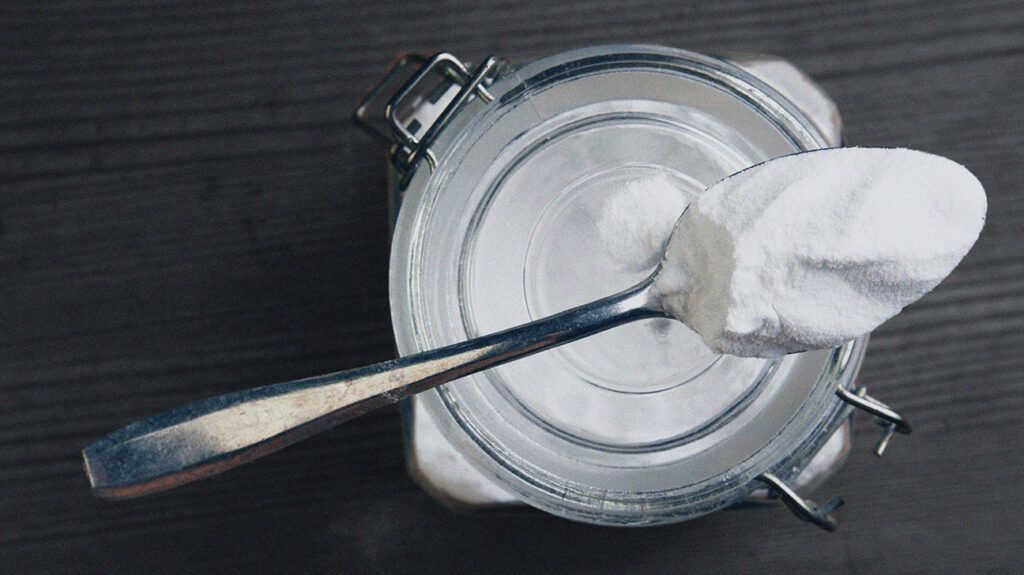Some people drink baking soda for indigestion and other purposes, but drinking baking soda can be dangerous and is not suitable for long-term use, use during pregnancy, or use in children.
Baking soda, or sodium bicarbonate, is a popular substance with many uses. For indigestion, a person can purchase it as a powder and mix it into water.
Some people claim that drinking baking soda is generally beneficial for health. However, there is little scientific evidence to support this.
This article explores the dangers of drinking baking soda, as well as its potential benefits.

Baking soda is an alkaline substance that can neutralize excess stomach acid. In small amounts, it provides temporary relief from indigestion and works in a similar way to over-the-counter (OTC) indigestion remedies.
However, using large amounts of baking soda as a home remedy has some risks, including:
Poisoning
When using it in its powder form, it can be easy for a person to take too much baking soda. This can cause adverse effects, such as digestive discomfort.
In too large a dose, baking soda is also poisonous. This is due to the powder’s high sodium content.
When someone takes too much sodium bicarbonate, the body tries to correct the salt balance by drawing water into the digestive system. This causes diarrhea and vomiting.
If the body absorbs the sodium, it can cause:
If a person has taken a large amount of baking soda and is experiencing any poisoning symptoms, someone needs to call Poison Control at 800-222-1222.
Ruptured stomach
In addition to poisoning, taking large amounts of baking soda can also rupture the stomach.
When baking soda mixes with an acid, a chemical reaction takes place. A byproduct of this reaction is the release of gas.
In
Toxicity in children
A parent or caregiver should not give baking soda or any medications containing sodium bicarbonate to a child.
If a parent or caregiver is not sure if a child has swallowed any baking soda, they can look for early symptoms of an overdose, such as diarrhea and vomiting.
Interference with medications
Baking soda can affect how the body absorbs medications. Depending on the medication a person takes, this could cause a wide range of adverse effects.
It can be safer to use OTC indigestion products, such as Tums, for indigestion rather than making at-home remedies. This lowers the risk of overdosing.
Adults who are not pregnant can mix about half a teaspoon (tsp) of baking soda with at least half a cup of water to relieve temporary indigestion.
When it is not possible to purchase an OTC product, using baking soda is a potential short-term alternative. However, it is important to speak with a doctor before trying this.
People who are pregnant, who take other medications, or who have underlying health conditions should talk with a doctor before taking even a small dose of baking soda.
People should not use sodium bicarbonate for longer than 2 weeks at a time. If their symptoms persist for longer than this, it may indicate an underlying condition that requires medical treatment.
Baking soda contains sodium, which, in high amounts, can affect the heart.
One
There have also been cases of baking soda overdoses causing cardiac arrest. This occurs when the heart suddenly stops pumping blood, which can be fatal.
However, although scientists know that taking too much baking soda is harmful to the cardiovascular system, it is unclear whether or not it raises the risk of a heart attack.
People with cardiovascular disease and those who need to avoid salt for medical reasons should avoid using baking soda or sodium bicarbonate.
The primary benefit of drinking baking soda is the temporary relief of indigestion or heartburn. There is also evidence to suggest that it may reduce muscle fatigue during athletic training.
One 2020 meta-analysis found that sodium bicarbonate supplementation does improve muscle endurance but not muscle strength. This was true for participants who took sodium bicarbonate in both resting and fatigued states.
A
People should not use sodium bicarbonate for fitness or health purposes without the supervision of a doctor.
Below are frequently asked questions relating to baking soda and indigestion.
What does baking soda do to your stomach?
Baking soda can neutralize excess stomach acid. Many people dissolve baking soda in water and drink it to provide temporary relief from indigestion.
What if I have an ulcer?
Baking soda, as well as OTC antacids, can temporarily relieve the symptoms of stomach ulcers. However, antacids are not a cure for stomach ulcers.
For ulcers due to NSAID use, people may need to
Occasionally, drinking baking soda to help with indigestion or heartburn can be a safe home remedy for some adults.
However, this is not safe during pregnancy, in children, or over long periods. It also cannot treat conditions that cause heartburn, such as stomach ulcers.
In general, it is best to use OTC indigestion remedies, as there is a lower risk of overdose. When this is not possible, however, a person can mix half a tsp of baking soda into at least half a cup of water. That said, they should be sure to discuss this with a doctor first.
If a person takes too much baking soda, someone needs to call Poison Control at 800-222-1222.
